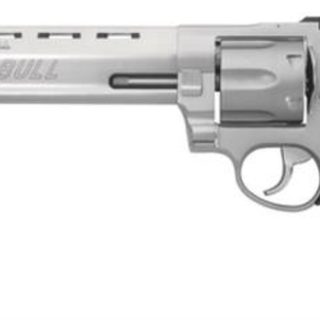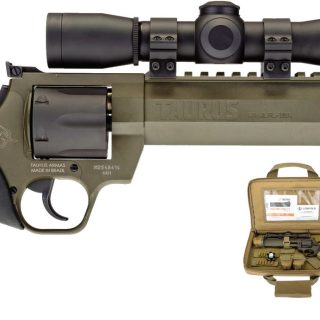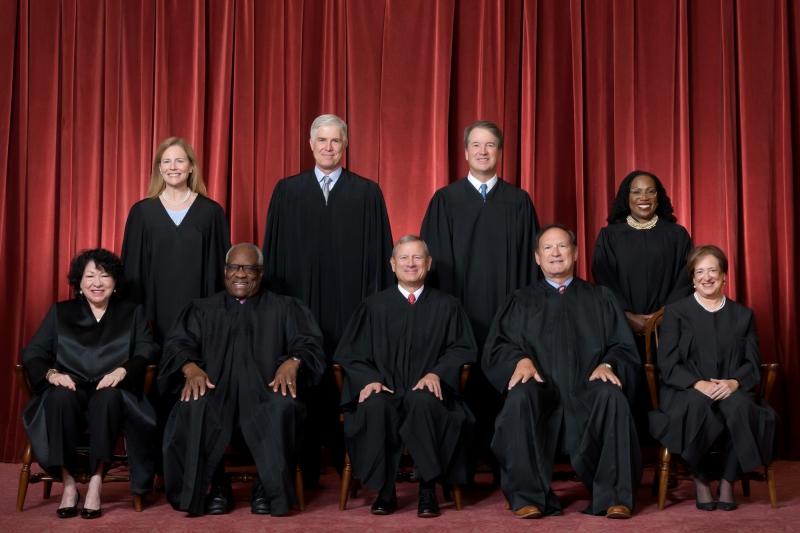Category
- Handguns
- Uncategorized
- 1911 Guns
- 1911-22 PISTOLS
- 1911-380
- A5
- AB3
- Ammunition
- AR-15 Rifles
- AR-15 Stripped Lower Receivers
- ARMALITE
- B&T USA
- BAR
- Barrel Rifles
- BERETTA USA CORP
- Big Game Hunting
- BL-22
- Blackpowder
- BLR
- Bolt Action
- BPS
- BT-99
- BUCK MARK PISTOLS – BROWNING
- California
- CITORI
- CITORI 725
- Clearance Firearms
- CO2 WEAPONS
- Collector Guns
- Colorado
- COLT
- Concealed Carry Guns
- Cyber Monday
- CYNERGY
- DANIEL DEFENSE
- Exclusive Guns
- Featured
- Firearms
- FN AMERICA
- Fortnite
- GOLD
- Hand Guns
- Handguns Sale
- High-Capacity Magazines
- Holsters
- Home Defense Deals
- Home Defense Guns
- Hot Deals
- IPSC
- IWI US
- Lever Action
- Limited Edition
- Magazines
- Massachusetts
- MAXUS II
- MOSSBERG
- Mother's Day Sale
- Muzzleloader
- National Shooting Sports Month
- New Arrivals
- New for 2020
- New for 2021
- New for 2022
- New for 2023
- New for 2024
- New Guns
- NSSM Employee Range Picks
- Old West
- Optics
- Over Under
- PISTOLS
- RECOVER TACTICAL
- Revolver
- Rifle Scopes
- Rifles
- ROCK RIVER ARMS
- SA-22
- Semi-Auto
- Shooting Sports
- Shotguns
- SIG SAUER
- SILVER
- Small Game Guns
- SMITH & WESSON
- SPRINGFIELD ARMORY
- State Legal Guns
- STEYR ARMS
- Suppressors
- T-BOLT
- Target Shooting
- TAURUS
- Taurus 1911
- Taurus 380
- Taurus Accessories
- Taurus G2
- Taurus Pistols
- Taurus Revolvers
- Top Handguns
- Used Guns
- Varmint & Pig Hunting
- WALTHER
- WINCHESTER
- Womens Guns
- X-BOLT
Cart
Product categories
- 1911 Guns
- 1911-22 PISTOLS
- 1911-380
- A5
- AB3
- Ammunition
- AR-15 Rifles
- AR-15 Stripped Lower Receivers
- ARMALITE
- B&T USA
- BAR
- Barrel Rifles
- BERETTA USA CORP
- Big Game Hunting
- BL-22
- Blackpowder
- BLR
- Bolt Action
- BPS
- BT-99
- BUCK MARK PISTOLS - BROWNING
- California
- Canik
- CITORI
- CITORI 725
- Clearance Firearms
- CO2 WEAPONS
- Collector Guns
- Colorado
- COLT
- Concealed Carry Guns
- Cyber Monday
- CYNERGY
- DANIEL DEFENSE
- Exclusive Guns
- Featured
- Firearms
- FN AMERICA
- Fortnite
- GOLD
- Hand Guns
- Handguns
- Handguns Sale
- High-Capacity Magazines
- Holsters
- Home Defense Deals
- Home Defense Guns
- Hot Deals
- IPSC
- IWI US
- Lever Action
- Limited Edition
- LS Series Crate Engines
- Magazines
- Massachusetts
- MAXUS II
- MOSSBERG
- Mother's Day Sale
- Muzzleloader
- National Shooting Sports Month
- New Arrivals
- New for 2020
- New for 2021
- New for 2022
- New for 2023
- New for 2024
- New Guns
- NSSM Employee Range Picks
- Old West
- Optics
- Over Under
- PISTOLS
- RECOVER TACTICAL
- Revolver
- Rifle Scopes
- Rifles
- ROCK RIVER ARMS
- Ruger
- SA-22
- Semi-Auto
- Shooting Sports
- Shop by Pistol Caliber
- Shop by Rifle Caliber
- Shotguns
- SIG SAUER
- SILVER
- Small Game Guns
- Small-Block Engines
- SMITH & WESSON
- SPRINGFIELD ARMORY
- State Legal Guns
- STEYR ARMS
- Suppressors
- T-BOLT
- Target Shooting
- TAURUS
- Taurus 1911
- Taurus 380
- Taurus Accessories
- Taurus G2
- Taurus Pistols
- Taurus Revolvers
- Top Handguns
- Uncategorized
- Used Guns
- Varmint & Pig Hunting
- WALTHER
- WINCHESTER
- Womens Guns
- X-BOLT
Hot Products
-
 Taurus Mod 454 Raging Bull 454 Casull 8.37" Barrel 5rd Adjustable Sight Synthetic Grip SS
Taurus Mod 454 Raging Bull 454 Casull 8.37" Barrel 5rd Adjustable Sight Synthetic Grip SS
$1,007.89Original price was: $1,007.89.$907.10Current price is: $907.10. -
 Taurus Judge .410 / .45 Colt Revolver, First 24 Gun Survival Kit
Taurus Judge .410 / .45 Colt Revolver, First 24 Gun Survival Kit
$1,249.49Original price was: $1,249.49.$1,124.54Current price is: $1,124.54. -
 Taurus Raging Hunter 44 Remington Mag, 8.37" Barrel, Olive Drab Green-Black, Scope & Case, 6rd
Taurus Raging Hunter 44 Remington Mag, 8.37" Barrel, Olive Drab Green-Black, Scope & Case, 6rd
$1,481.09Original price was: $1,481.09.$1,332.98Current price is: $1,332.98. -
 Taurus Revolver Moon Clip 9mm 5rd Black
Taurus Revolver Moon Clip 9mm 5rd Black
$11.96Original price was: $11.96.$10.76Current price is: $10.76. -
 Taurus Spectrum Double 380 ACP 2.8", /7rd Laguna Blue Polymer Grip Stainless, 6rd
Taurus Spectrum Double 380 ACP 2.8", /7rd Laguna Blue Polymer Grip Stainless, 6rd
$194.79Original price was: $194.79.$175.31Current price is: $175.31.

The Mexican government’s $10 billion lawsuit against American gun manufacturers is hopefully headed to the Supreme Court. The defendants’ lawyers in Estados Unidos Mexicanos v. Smith & Wesson Brands, Inc., et al. have petitioned the high court for a Writ of Certiorari focused on two questions:
- Whether the production and sale of firearms in the United States is the “proximate cause” of alleged injuries to the Mexican government stemming from violence committed by drug cartels in Mexico.
- Whether the production and sale of firearms in the United States amounts to “aiding and abetting” illegal firearms trafficking because firearms companies allegedly know that some of their products are unlawfully trafficked.


This petition was generated by the First Circuit Court of Appeals, which overturned the Massachusetts Federal District Court’s dismissal of the original suit. The First Circuit held that those two questions could be answered in the affirmative, making American gun makers somehow responsible for the horrific violence perpetrated by Mexican drug cartels. The First Circuit, incredibly, ruled that Mexico’s alleged injuries were a “foreseeable” result of the defendants’’ actions. This means producing and selling legal products according to US law.
The Mag Life Blog has previously covered this case in some detail. You can read those articles here and here. But we’ll do a quick summary and talk about why this is important. We’ll also touch on how the anti-gun movement in the United States is ultimately behind this whole thing and what those bad actors hope to gain.
Mexico’s Claims
Mexico’s extraordinary allegations seek to blame US gun companies for their own government’s failed policies. The suit claims that US gun makers produce semi-automatic weapons, especially guns like the AR-15, and magazines holding more than 10 rounds, some of which are smuggled into Mexico to the drug gangs. The complaint further alleges that these companies willfully take no steps, aside from those required by US law, to mitigate the damage caused by their products’ misuse in Mexico.
That’s literally it. Mexico is suing gun makers for following the law and legally selling their products. Their complaint does not cite even one illegal activity in which these companies are engaged. But Mexico says they should go further than US law dictates by voluntarily not making guns the Mexican government doesn’t like and only selling them to people who can demonstrate a particular need for them.
That wish list basically mirrors Mexican gun laws, which is certainly no coincidence. The country literally has ONE gun store. It’s on a military base in Mexico City. Only rich, powerful, connected people can own a firearm, and even then, you take what they decide to give you. Mexico boasts that it grants fewer than 50 firearm licenses per year.
Some of Mexico’s allegations are unbelievably wild, like claiming that Smith & Wesson’s M&P (Military & Police) marketing incites people “to battle against the military and police.” (Emphasis added). It’s truly ridiculous.


The Petition
The defendants say the Supreme Court should grant the petition for the following reasons:
- “The First Circuit’s proximate cause holding creates a split and conflicts with this Court’s precedent.”
Basically, the First Circuit goes against established case law and creates a split among the Circuit Courts and several State Supreme Courts. This is important to whether the Supreme Court will accept the petition. Splits, especially among the federal appellate courts, potentially create judicial havoc, meaning the high court is likely to address it.
- “The First Circuit’s aiding-and-abetting holding defies this Court’s precedent.”
A lower court deliberately ruling against Supreme Court precedent is a no-no. This may also prompt the petition’s acceptance.
- “The questions presented are exceptionally important.”
The petition says that the First Circuit’s logic “exposes a wide swath of industry to liability for doing nothing more than making available legal and non-defective products that can be criminally misused downstream.” Additionally, “Mexico’s brazen attempt to regulate the American firearms industry based on its foreign interests poses a grave threat to the sovereignty of the United States, its citizens, and their Second Amendment rights.”
The second point addresses American sovereignty and the dangers of allowing foreign governments to dictate our laws and citizens’ rights through our own court system. Allowing the First Circuit’s decision to stand opens American companies to limitless frivolous suits by governments seeking to deflect blame from their failed policies. It really does boggle the mind, and one wonders what the First Circuit was thinking.
The petition lists two additional legal reasons for acceptance that go beyond the scope of this article. You can read the entire petition on the National Shooting Sports Foundation’s website, nssf.org.


Bad Actors
If you’re thinking Mexico’s lawsuit is about bankrupting American gun companies, you’d be right. The case has no legal merit despite the First Circuit’s ruling. Mexico’s US attorneys no doubt chose Massachusetts for the case because of a sympathetic appellate court. The City of Chicago’s recent lawsuit against Glock has the same ultimate goal. But Chicago didn’t have to shop for sympathetic judges since it’s, well, Chicago, and they are already governed by the anti-gun 4th Circuit.
But those two cases have something else in common. Each is being pushed by a prominent American gun control organization. Everytown Law, the legal division of Everytown for Gun Safety, is litigating on Chicago’s behalf. The Mexican government allied with the Brady group (I don’t know what their correct name is this month) and a firm of left-leaning Austin, Texas lawyers to bring their suit.
So, US gun control groups are now aligned with foreign governments to bring down legitimate American companies they don’t like. They can’t get their way politically, so they’re trying to destroy an entire industry through ridiculous lawsuits. Even if they don’t win, companies can only defend themselves in court for so long. Especially when their opponents can pay their lawyers with tax money. And they’ve already tasted some success with Remington’s $73 million settlement with the Sandy Hook parents.
That’s why the Biden Administration and anti-gun lawmakers are so hell-bent on repealing the Protection of Lawful Commerce in Arms Act. They want to sue gun companies into oblivion when criminals misuse their products, just as Mexico is trying to do. Even ridiculous cases must be defended in court, and lawyers aren’t cheap. Those companies would be overwhelmed in short order. Of course, no one ever accused gun controllers of being ethical.


Turncoats
But gun control groups aren’t the only ones siding with outside interests. Twelve State Attorneys General filed signed a 26-page legal brief supporting Mexico in 2022. Those Attorneys General are from Connecticut, Delaware, Hawaii, Illinois, Maryland, Massachusetts, Michigan, Minnesota, New Jersey, New Mexico, New York, and Oregon. The District of Columbia’s AG signed on for good measure. Again, those AGs supposedly represent American citizens, yet they have sided with a foreign government aiming to limit those citizens’ Constitutional rights. But such are the priorities of the anti-gun movement.
What’s at Stake?
The defendant’s petition answers that question quite clearly, and it deserves to be reprinted here:
The First Circuit’s decision, it reads, “has dire implications for American sovereignty, as it allows a foreign government under the guise of litigation to regulate (if not eliminate) the manufacture and sale of common firearms in the United States. Simply put, Mexico detests the American system that makes firearms readily available to law-abiding citizens in accordance with the Second Amendment. It makes no secret of its view that ordinary citizens should not be allowed to buy an AR-15 or a firearm capable of holding over ten rounds. And it finds abhorrent how law-abiding Americans have the liberty to obtain such firearms without having to beg for the government’s grace.”
“Absent this Court’s intervention, Mexico will be handed a de facto domestic regulatory tool as it saddles the American firearms industry with burdensome litigation, far-reaching compulsory discovery, and the specter of a multi-billion-dollar judgment that it can wield to bully the industry into altering its practices. And that says nothing of Mexico’s proposed injunctive relief, which seeks to impose gun control regulations that Congress has repeatedly rejected. That is not all. Even if the defendants prevail down the road in this suit, so long as the decision below remains good law, it invites other countries to run the exact same play with the exact same basic complaint.” A footnote points out that some countries have already promised to do so.


The petition continues, saying that “Giving foreign sovereigns the power to impose the burdens of such litigation gives them a Damoclean Sword to dangle over the head of the American firearms industry. Indeed, in passing PLCAA, Congress recognized that the severe costs of defending suits like this one could pressure firearms companies to curtail their business practices, jeopardizing democratic control. (PLCAA prohibits efforts to “use the judicial branch to circumvent the Legislative branch of government to regulate interstate and foreign commerce”); (“[The industry is] in danger of being overwhelmed by the cost of defending itself against these suits.”). That danger is especially acute when it comes from foreign governments, as they seek to use lawfare to suppress American firearms with no accountability to the American people.”
What Now?
Well, we wait to see whether the Supreme Court accepts the petition. I’m no lawyer, but I think the split opinions among the lower courts, combined with a foreign government trying to limit American citizens’ Constitutional rights, would make this an easy call. But you never know. Nor can we predict with any certainty how the high court would rule in the end. I’d say I’m cautiously optimistic, but the stakes are too high to blow sunshine up your backside. We’ll keep you updated.
#Gun #Makers #Supreme #Court #Review #Billion #Mexican #Lawsuit
Written by admin
Add to Cart
Join Risk Free
30 days refund
100% Safe
Secure Shopping
24x7 Support
Online 24 hours
Best Offers
Grab Now
Free Shiping
On all order over





Leave a Reply